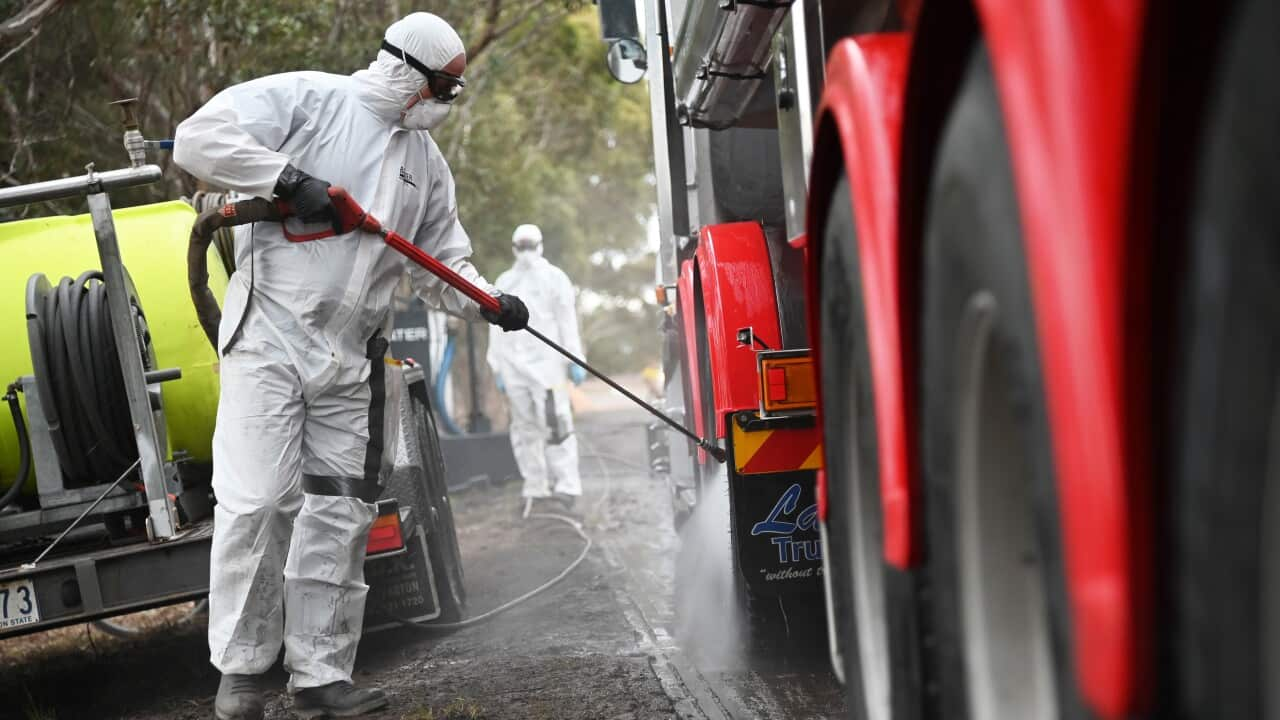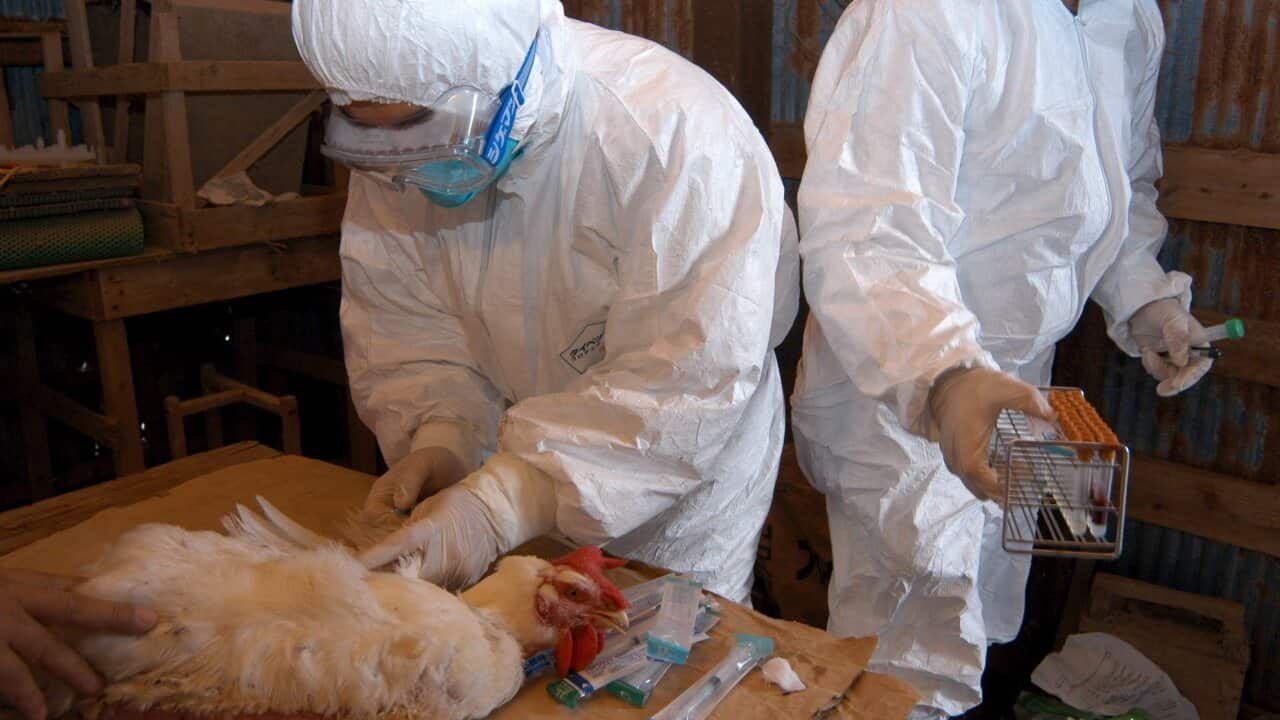Australia's bird flu outbreak has worsened, with a strain of the disease found on seven properties in Victoria now detected on a NSW egg farm.
The NSW government confirmed on Wednesday that avian influenza (bird flu) had been picked up in the Hawkesbury district, north of Sydney, although the strain was different to that detected in Victoria.
The H7N8 strain found in NSW was believed to be a "spill-over" event, possibly from wild birds. NSW officials engaged the state's emergency biosecurity incident plan, sending the farm into quarantine and triggering movement controls in the area.
The background: More than one million chickens and ducks on Victorian farms will be destroyed in an effort to minimise the damage caused by multiple outbreaks.
Agriculture Victoria revealed this week the highly pathogenic bird flu strain H7N3 was found at a seventh Victorian farm — already in quarantine — in the Golden Plains Shire in the state's central west.
Most of the Victorian properties affected have chickens but a duck farm in Golden Plains Shire that produces eggs and meat, and was already in quarantine, was confirmed to have the virus on 13 June.
Six of the infected properties in Victoria are confirmed to have the H7N3 strain of bird flu and one infected property near Terang has the H7N9 strain.
However, the H5N1 strain that has infected billions of wild and farmed animals globally and raised fears of human transmission has not been detected.
The key quote: "Movement restrictions are expected to be in place for several weeks, and we're working with industry to support poultry farmers with the logistical challenges they're facing." — Graeme Cooke, Victoria's chief veterinary officer.
What else to know: The World Health Organization revealed on 5 June that a two-year-old girl in Melbourne who had recently travelled from India had to be put in intensive care in March after falling sick with the H5N1 strain.
What happens now: The NSW and Victorian governments have said people should not be worried about buying eggs and poultry from supermarkets and the outbreaks do not pose a risk.
While humans can contract avian influenza viruses when in direct contact with infected animals, Agriculture Victoria said the risk to the public remained extremely low.










